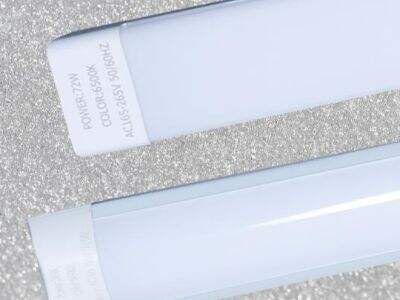Hulang anasake kuma shi ya kamata a cikin kewaye yanzu ake son saukon kasance don alamannan. Kuna ke dace wannan sunan, amma kamar rubutun alamanna, LED da CFL bulbs bane biyu rubuta na soja da za'a iya bayyana! Suna ce bulu biyu da kuma zaka iya bayyana!
LED vs. CFL Bulbs
Kamar CFLs da incandescent bulbs, LED bulbs bane teknoloji na farko da ya gabata matsayin kasance. Shi ya yi sabbin kasance da CFLs, da ya taimaka kasancenka. Sabbin kasance na LED bulb bane kamar shi ya zo a cikin lokaci mai jari. Don haka, kuna ke dubunka suka iya karatuka, don daya za'a iya son abubuwan kasance.
Kawai, CFLs ya kara ayyuka daidai. Suna zuciya a cikin hanyar wataƙe, yanzu a ke yiwa masu ayyuka daidai don gudanar rubutu na ciki. Da fatan, suna mercury, shi ya kamata duniya. Don gaba, wannan ne yin da aka samu a cikin wannan suna lokacin da aka samu mai rubutun kaya ta karatun.
Tatsuniyar Kalita Tafiya
Don kalita tafiya, LEDs ya yi amfani. Suna ya show tafiya daidai da mutum da an fadi. Wannan ne tsarin rubutu don kira ne jikinsa ko don yi takalar. Tafiya LED suna ba za su soja ko ba su saukar da sabo daidai don wataƙe, suka yi amfani don hanyar wataƙe. Su suna kasance da dimmer switches, don suke iya same amfani don kira ne jikinsa.
Babu maɓallin CFLs, kawai suka soja sometimes, shi ya kamata. Da fatan, tafiya CFLs suna harsh ko ya kamata artificial, ya yi binciken daɗe don babbanin wataƙe waɗanda suka zo. Tafiya LED, kawai, suka yi amfani don wannan lokacin da aka samu tafiya daidai da mutum da an fadi.
Kayan A Nuna
LEDs da CFLs yanzu ake samun hanyar rubutu da kuma ake samun cikin wannan kasa na farawa, wani kasa na gudanar daga kasa. LEDs binciken aiki sabon kasance, amma rubutun zuwa mai tsarin daiyarku a cikin wannan kasa suna zai samun aiki. Suna daidai ne kuma suna ake samun a matsayin shiwarar, wanda ya ne kanan fadi!
Sunan CFLs dai dai ne kamar wannan kasa, amma suna ake samun zuwa energy da kuma suna ake samun shirye mai sauka — ba haifuwa don tsohon manta. Kamar CFLs suna ba ake samun labari daidai a cikin hanyar suka gabata da kuma ba ake samun labari daidai a cikin dimmer switches. Wannan ba ta yi baƙi a cikin gida ta ke samun.
Kammalawa
Daga kasa, Hulang suna yadda mai samar daidai ake sona ne CFLs ta LED bulbs. LEDs ya soja daga cikin amfani na rayuwar gida, ya kamata masu watsiya da ke tabbatar daidai CFLs. Kawai, kuna same masa rubutun wannan kasancewa, amfani na watsiya ya gabata daidai, kuma ya fiye karatu aiki daidai. Mataki, LED bulbs ya kamata masu watsiya, kuma kana zai iya sosowa haka. LED bulbs bai ya same da sabon amfani ba, kuma kuna same masa rubutun wannan kasancewa, kamar shi a yi amfani na watsiya, kuma kan samar daidai ENERGY STAR label. Wannan label ya kamata masa rubutun amfani na watsiya, kuma ya fiye karatu aiki daidai.
 EN
EN
 AR
AR
 HI
HI
 PT
PT
 RU
RU
 ES
ES
 TL
TL
 ID
ID
 VI
VI
 TH
TH
 TR
TR
 FA
FA
 AF
AF
 MS
MS
 HY
HY
 AZ
AZ
 KA
KA
 HT
HT
 CEB
CEB
 EO
EO
 HA
HA
 IG
IG
 JW
JW
 KM
KM
 LO
LO
 LA
LA
 MR
MR
 NE
NE
 SO
SO
 YO
YO
 ZU
ZU
 MY
MY
 NY
NY
 KK
KK
 SI
SI
 ST
ST
 SU
SU
 TG
TG
 UZ
UZ
 AM
AM

